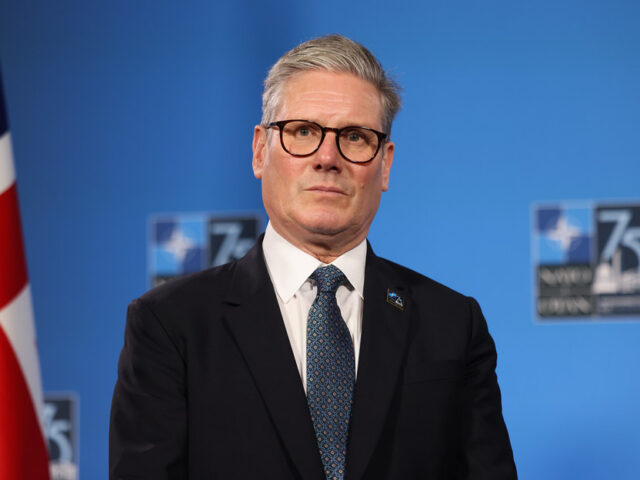A near-week of threats hasn’t had the hoped-for impact for Sir Keir Starmer, who on Monday announced a change of tack with the establishment of a “standing army” to crush riots where they appeared.
The Prime Minister, a seasoned lawyer with a usually assured and slick style seemed unsure of his words at times and lacked his normal energy as he spoke to journalists on Monday after he stepped out of a government crisis meeting.
Speaking at his official residence and office Downing Street, where it appears a certain degree of bunker mentality has set in — the husband of the Home Secretary (Interior Minister) complained his hadn’t seen his wife in a week on national television this morning — Sir Keir said of what had been agreed as the next steps: “The first is we’ll have a standing army of specialist officers… [unintelligible]… so what we’ll have enough officers to deal with this where we need them”.
Nevertheless, the Prime Minister still seemed happy enough with the recording to publish it through his official channel several hours later.
‘Standing army’ of course has specific meaning, referring to a permanent, professional force of soldiers paid for by the state. While this may be the status quo for most nation states in the 21st century, until the Early Modern era in England, keeping a full time Army was considered prohibitively expensive. Only the truly important elements of national defence, a fighting navy and an artillery establishment, were paid for continuously, as these would take too long to regenerate in case of an unexpected war.
Britain’s first standing Army was the New Model Army of Oliver Cromwell, used to win a civil war and then enforce a period of direct military rule under the Major-Generals, meant to weaken the enemies of the state which Cromwell perceived as dangerous conspirators after an attempted uprising.
While the country waited for days to learn even the slightest details of the mass stabbing of young children a week ago, creating an information vacuum which many have stated contributed to the febrile atmosphere leading to protests, Sir Keir was clear today there would be no waiting around to find out the identities of those prosecuted for rioting. “I have asked for consideration of the earliest naming and identification of those involved in the process, who will feel the full force of the law”, he said.
Stuttering Sir Keir evidently wasn’t the only attendee shaken by Monday’s COBRA (UK government emergency management committee) meeting in the Cabinet Office. Sir Mark Rowley, the country’s top police officer was also around the table and was evidently so worked up by whatever had gone on inside, he snapped at a journalist as he left the building, grabbing the man’s microphone out of his hand and casting it onto the ground.
The top cop may have felt slighted after the journalist in question asked him “Are we going to end two-tier policing, sir?”, referring to the rising number of observers asking why there appears to be such a clear differential in police response between communities when they take the the streets. The government does not appear to consider the issue one worth engaging with, however: the Home Secretary dodged the question when asked on breakfast television on Monday, and the Prime Minister in his “Standing Army” press conference also evaded answering.
He responded when asked by the BBC: “there’s no two-tier policing. There is policing without fear or favour, exactly as it should be, exactly what I would expect and require. So that is a non-issue… this is not protest. It is violence”.

COMMENTS
Please let us know if you're having issues with commenting.